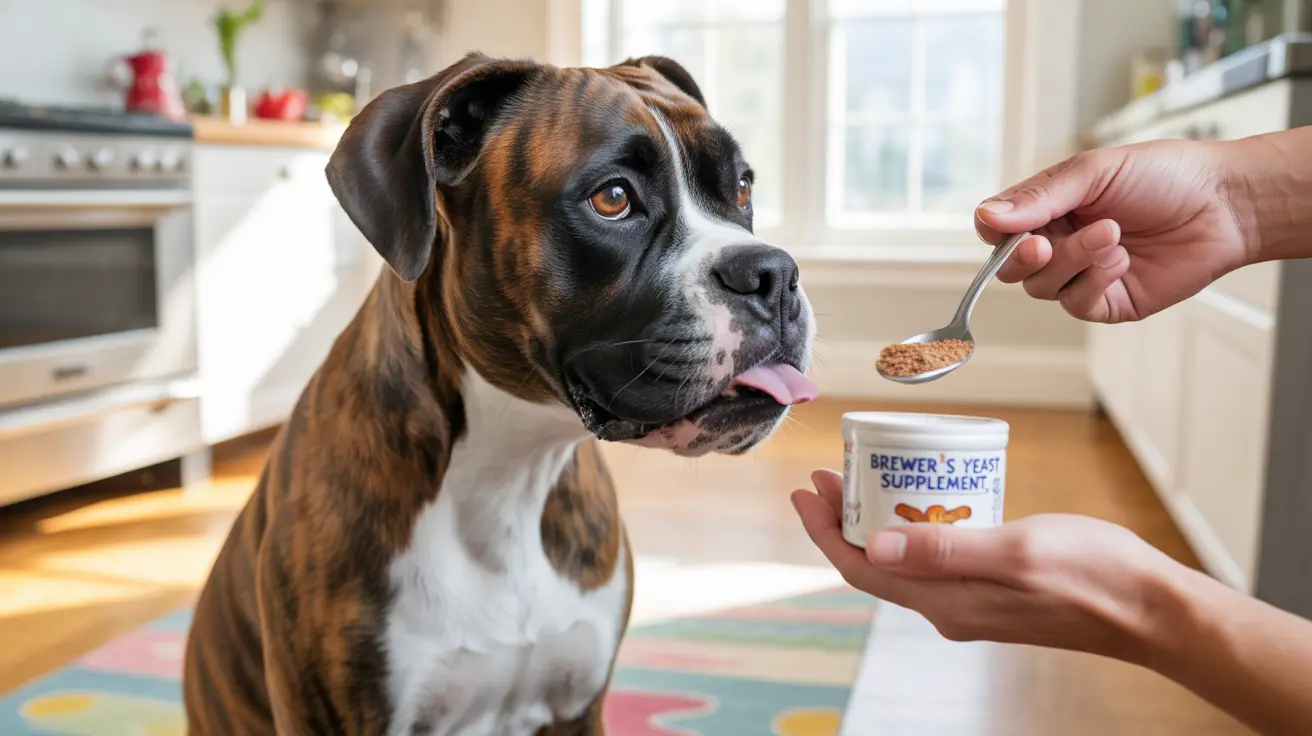What is Brewer's Yeast and How Does it Benefit Dogs?
Brewer's yeast is a nutritional supplement derived from a single-celled fungus called Saccharomyces cerevisiae, which is a byproduct of beer brewing. This supplement is packed with essential nutrients, including:
- B-complex vitamins
- High-quality protein (40-50%)
- Selenium
- Chromium
- Essential minerals
When properly administered, these nutrients can provide several health benefits for dogs, including improved coat health, enhanced immune function, and better digestion.
Safety Guidelines for Giving Brewer's Yeast to Dogs
While brewer's yeast is generally safe for most dogs, proper dosing is essential. The recommended dosage varies based on your dog's size:
- Small dogs (under 10 lbs): ¼ teaspoon daily
- Medium dogs (10-25 lbs): ½ to 1 teaspoon daily
- Large dogs (25-50 lbs): 1-2 teaspoons daily
- Giant breeds (over 50 lbs): 1-1.5 tablespoons daily
Always start with a smaller dose and gradually increase it while monitoring your dog's reaction. This approach helps minimize the risk of adverse effects.
Potential Health Benefits
Skin and Coat Health
The B vitamins and selenium in brewer's yeast can contribute to a healthier, shinier coat and improved skin condition. Many dog owners report reduced dryness and itching after regular supplementation.
Immune System Support
The high concentration of B vitamins and antioxidants helps strengthen your dog's immune system, potentially reducing the frequency of infections and illness.
Digestive Health
Some dogs experience improved digestive function due to the beneficial properties of brewer's yeast, including better nutrient absorption and regular bowel movements.
When to Avoid Brewer's Yeast
Despite its benefits, brewer's yeast isn't suitable for all dogs. You should avoid giving it to:
- Dogs with yeast allergies or sensitivities
- Pets prone to yeast infections
- Dogs with compromised immune systems
- Dogs taking certain medications (especially anti-anxiety or diabetes medications)
- Dogs with a history of bloat
Monitoring Your Dog's Response
When introducing brewer's yeast, watch for these potential side effects:
- Digestive upset (gas, bloating, diarrhea)
- Allergic reactions (itching, redness, hives)
- Changes in appetite or behavior
- Excessive scratching or ear infections
If you notice any of these symptoms, discontinue use and consult your veterinarian.
Frequently Asked Questions
Is brewer's yeast safe for all dogs, and which dogs should avoid it?
While brewer's yeast is generally safe for healthy adult dogs, it's not suitable for dogs with yeast allergies, compromised immune systems, or those prone to yeast infections. Always consult your veterinarian before starting supplementation.
How much brewer's yeast should I give my dog based on its size?
Dosage varies by weight: ¼ teaspoon for dogs under 10 lbs, ½-1 teaspoon for 10-25 lbs, 1-2 teaspoons for 25-50 lbs, and 1-1.5 tablespoons for dogs over 50 lbs. Start with a smaller dose and increase gradually.
What are the benefits of giving brewer's yeast to my dog's skin, coat, and digestion?
Brewer's yeast can improve coat shine, reduce skin dryness, enhance immune function, and support digestive health through its rich content of B vitamins, proteins, and minerals.
Can brewer's yeast really help control fleas on dogs?
While some pet owners report fewer flea problems with brewer's yeast supplementation, scientific evidence is limited. It should not be relied upon as the sole method of flea control.
What side effects or allergic reactions should I watch for when giving my dog brewer's yeast?
Monitor for digestive issues (gas, bloating, diarrhea), allergic reactions (itching, redness, hives), behavioral changes, and signs of yeast infections. Discontinue use and consult your vet if these occur.
Conclusion
Brewer's yeast can be a safe and beneficial supplement for many dogs when used properly. However, success lies in proper dosing, careful monitoring, and understanding your dog's individual health needs. Always consult with your veterinarian before adding any supplement to your dog's diet, and pay close attention to how your pet responds to ensure the best possible outcome.






